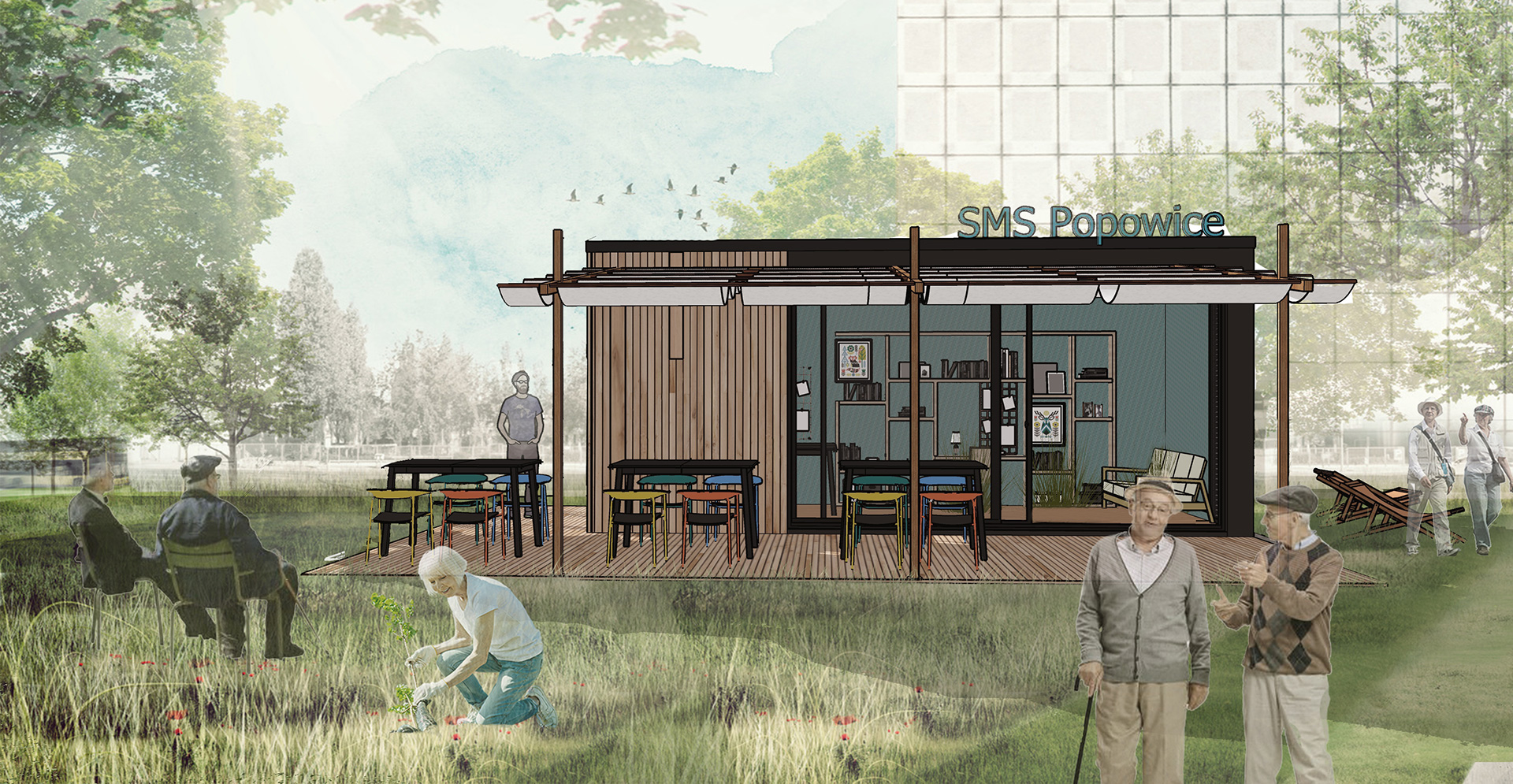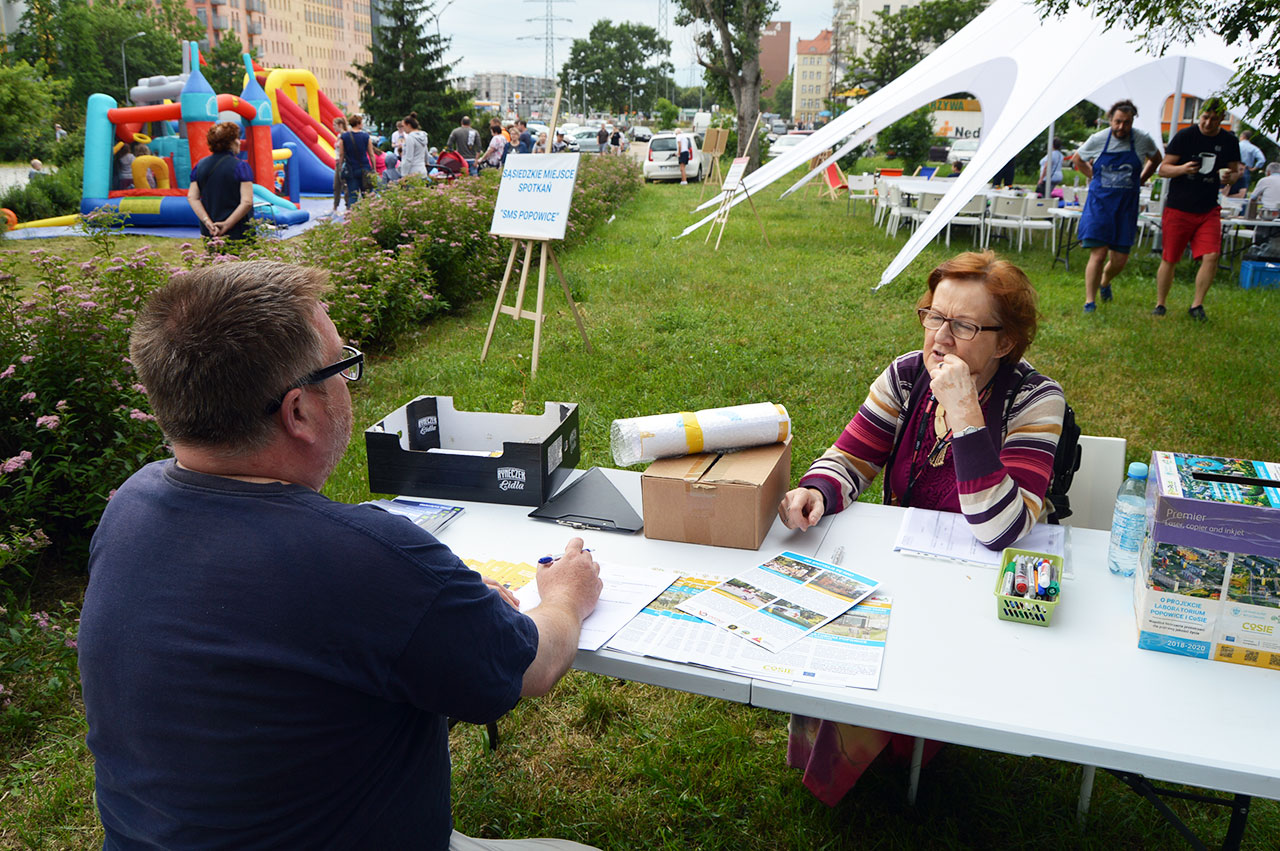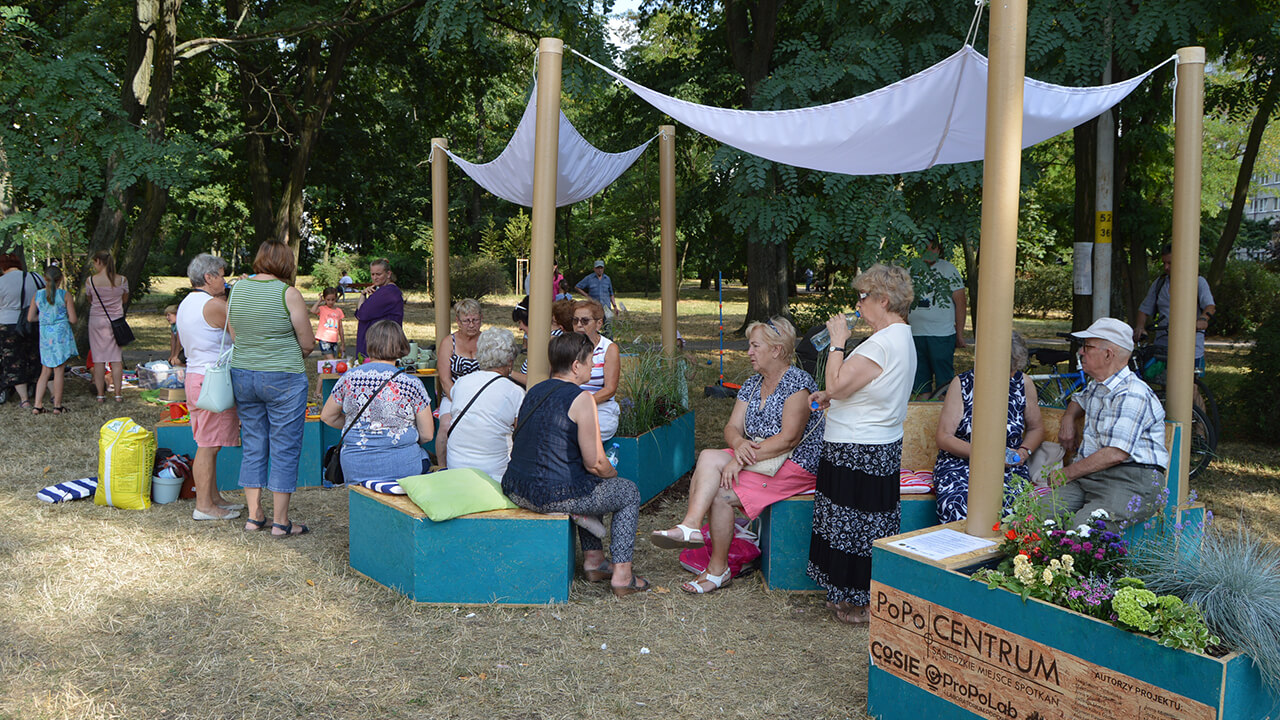
Project carried out within a framework of “Horizon 2020” in the years 2017-2020
ProPoLab – co-housing of seniors
www.cosie.turkuamk.fi/co-housing-of-seniors
 The main goal of the pilot is to disseminate and popularize the idea of co-creation in Poland. Particular attention is given to the social housing of seniors. The implementation of assumptions developed during the pilot will raise public awareness in this respect and develop new arrangements of co-creation within the local environment.
The main goal of the pilot is to disseminate and popularize the idea of co-creation in Poland. Particular attention is given to the social housing of seniors. The implementation of assumptions developed during the pilot will raise public awareness in this respect and develop new arrangements of co-creation within the local environment.

Pilot actions started during the other half of the year 2019. Geographic area and target groups. The participating target group of the pilot are seniors from Wroclaw municipality who live in the Popowice district of the city. Collaborators include Municipality of Wrocław and the Housing Community “Popowice”.

The Polish pilot programme looked at possibilities of improving elderly people’s lives through forms of co-habitation and co-housing. The research took place at a multi-family housing estate called Popowice (city of Wrocław), which is an example of a large multi-family housing estate built in the 1970’s. In order to find a solution for such a wide problem, the first step was to identify the needs of seniors and which of those needs are satisfied locally, what are the relations between neighbours and the attitude towards cooperation.
The research uses a slightly developed version of design thinking, i.e. service design, which additionally concerns organizational issues. This approach was innovative, but thanks to the identification of local leaders to stimulate dialogue and cooperation, despite different stakeholder perspectives, it was adapted to local contexts and beneficiaries. All stages were carried out with the participation of different groups of future recipients and stakeholders, such as the City Hall, the estate manager, business or NGOs.

The idea to co-create social innovation with all groups associated with the final product, was based on the premise that social innovation should be based on three main dimensions: meeting human needs, social change, increasing socio-political capacity and access to resources. To meet these challenges, the focus was on involving citizens and stakeholders in co-creation. The most important problems and needs of senior citizens concerning the housing estate were investigated and solutions were worked out together with the elderly. The structure of the housing estate, its services and satisfaction of seniors within the immediate vicinity and the housing estate as a whole were analysed in the spatial context.

It turned out that the most important problem was the lack of communication between neighbours and the general disinformation of seniors who could not keep up with the new media and the increasing loneliness. Seniors, however, are happy with their homes and would be reluctant to move to another place of residence (even if they would enjoy better amenities). The solution to the problem, co-created by the end users, is to build up the social capital of the inhabitants through community meeting places. In trying to solve the problems of existing housing estates, creating common spaces for residents is much more important than relocating older people to common spaces.
The solution, according to the residents, may be a small community centre, a meeting place. During the workshop beneficiaries of future services have created a very precise set of guidelines on how such a place should look and function. It was decided that the functional programme should be developed together with all of the inhabitants to meet their needs, as they preferred the place to be multigenerational instead of senioral. Participants of the workshop declared their willingness to become involved in the service and management of such a place as part of volunteering. Stakeholders were involved in the design process of the service at the whole stage, and by realizing these dreams, they gave the final product a real shape, based on the possibilities.

The concept of a Neighbourhood Meeting Place as a container integrated into the green areas between the buildings.
However, in order to convince oneself of the rightness of the solution and the involvement of the inhabitants, we have carried out tests on various scales. The first test carried out within the framework of the pilot program was to examine the opinions of other residents, the next test was a 1-day prototype of a meeting place within the framework of the local festival. A longer prototype, which lasted for almost the whole summer, was a small installation located in the green space of the estate. This installation had places to sit located in the shade, planting boxes and a neighbourhood library, but it was to be used primarily as a place for the organization of housing estate events. The project will be followed by a further test phase and further phases of co-creation with stakeholders to finally determine what shape the final service should take.

Second prototype of a meeting place – during a local picnic. The images show the information point and
a white tent containing a workshop area.
There is no doubt that the neighbourhood is of great importance to people, and most older people feel a strong or very strong connection with their place of residence and their neighbours. The mental well-being of the inhabitants is essential for building social capital, people who feel connected with the environment obtain many benefits. In this regard, the concept of ageing at home is particularly relevant, as it makes sense to create an area of activity close to places of residence with which people feel connected.

Third prototype of a community meeting place – a small installation. Common barbecue and flea market
organized by a group of children.
People need places and opportunities to establish and maintain social relationships. There are many methods and ways to achieve this goal, it is worth focusing on the possibilities of complementing the existing tissues of housing estates with objects and places that will encourage the elderly and enable them to actively participate in society. Bearing in mind that the problems of older people are local, they are concerned with their living environment in a specific city and therefore solutions must be developed especially for them.

CoSIE partners involved
Fundacja Aktywny Senior (Active Senior Foundation)
University of Wrocław



Read more about the pilot from CoSIE Blogs:
www.cosie.turkuamk.fi/co-housing-of-seniors
Social housing is like yeti:
www.cosie.turkuamk.fi/general/social-housing-is-like-a-yeti
Who are our stakeholders:
www.cosie.turkuamk.fi/general/who-are-our-stakeholders

Contact Persons: